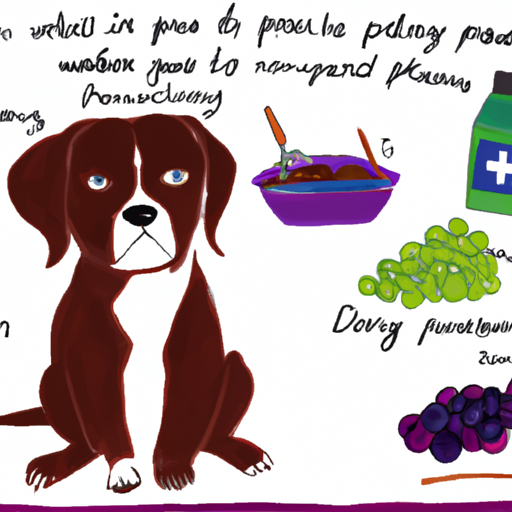1. Introduction
You are a caregiver, a guardian of your four-legged friend, always vigilant about their well-being. In your quest to be the best caregiver, knowing what could harm your pet is as important as knowing what they need. This guide aims to educate you on what can be poisonous to your dog.
2. Harmful Foods
Your dog might give you those pleading eyes every time you sit down for a meal, but it’s essential to know that not all human food is safe for them. Some toxic foods include:
- Chocolate: Contains theobromine, which is toxic to dogs.
- Grapes and Raisins: Can cause kidney failure.
- Onions and Garlic: Can destroy a dog’s red blood cells, leading to anemia.
| Food | Effect |
|---|---|
| Chocolate | Toxic, affects heart and nervous system |
| Grapes & Raisins | Can cause kidney failure |
| Onions & Garlic | Can cause anemia |
3. Household Items
Besides food, many common household items can pose a threat. Among these are:
- Cleaning Products: Can cause gastrointestinal distress and chemical burns.
- Medicines: Human medication, both prescription and over the counter, can be toxic to dogs.
- Insecticides and Pesticides: Can cause a range of symptoms from vomiting to seizures.
4. Plants That are Poisonous to Dogs
Your garden can be a paradise for your pup, but some plants can be dangerous. Lilies, azaleas, and tulips are among the plants that can harm your dog. Always research before adding any new plants to your home or garden.
5. What to Do if Your Dog is Poisoned
If you suspect your dog has ingested something poisonous, take immediate action. Contact your vet or a pet poison control center. Keep your pet calm and try to identify what they have ingested, as this can help with the treatment.
Frequently Asked Questions
Q: Can a small amount of poison be fatal to dogs?
A: Yes, even a small amount of certain toxins can be fatal.
Q: What are signs of poisoning in dogs?
A: Signs can include vomiting, diarrhea, drooling, changes in behavior, and seizures.
Q: What should I do if I can’t reach my vet?
A: If you can’t reach your vet, contact a pet poison control center immediately.
Remember, as a caregiver, the best thing you can do is prevent your dog from ingesting these harmful substances in the first place. Keep these items out of reach and ensure your home and garden are safe for your furry friend.



